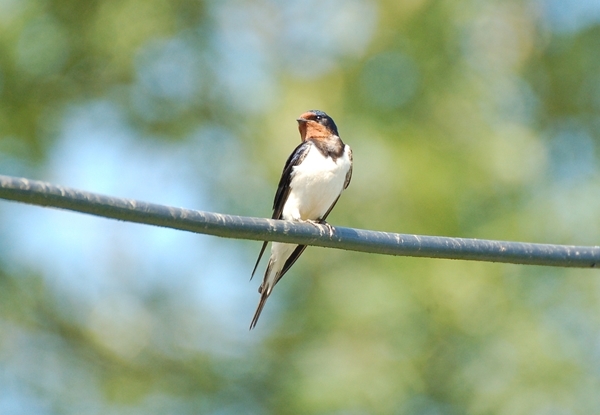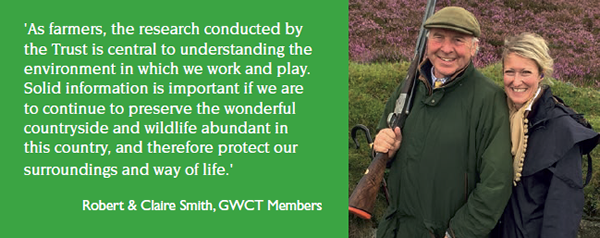
ADDING wildflowers to arable field margins could provide a larder of insects for Europe’s declining barn swallow population, a new study has found.
Extensive fieldwork undertaken by Dr Niamh McHugh of the Game & Wildlife Conservation Trust (GWCT) shows that barn swallows, commonly known as swallows in the UK, were more likely to forage along arable field margins sown with wildflowers.
Almost all existing research on the link between agri-environment scheme (AES) measures, such as wildflower margins, and birds focuses on seed-eating species which tend to forage on the ground, which made Dr McHugh even more keen to fill this knowledge gap.
Written by Dr McHugh and her farmland ecology team at the GWCT, the paper titled Use of field margins managed under an agri-environment scheme by foraging Barn Swallows was published in Bird Study. The paper also considers where margins should be sown to improve their effectiveness for swallows and suggests that placing them alongside hedgerows and verges increases the positive impact shown elsewhere.
It might not just be birds that benefit from the AES habitats implemented by farmers. Dr McHugh is also researching whether bats, who also forage for insects in flight, respond positively to AES measures designed to support birds and bees. As we move towards a post-Brexit farming policy, research recognising the variety of species supported by Britain’s farmland becomes increasingly important.
“Current AES policy does not consider how arable land can be managed to benefit aerial insectivores, but our results suggest that there may be a role for AES in the conservation of swallows.”
“The proposed restructuring of UK AES offers opportunities to incorporate new targets for aerial insectivores which could allow the new scheme to widen their beneficial impacts, whilst also providing improved value for money,” said Dr McHugh.
To read the paper in full, visit https://www.tandfonline.com/doi/full/10.1080/00063657.2018.1506736?scroll=top&needAccess=true
What do we do?
- We use science to promote game and wildlife management as an essential part of nature conservation.
- We develop scientifically researched game and wildlife management techniques.
- We promote our work to conservationists, including farmers and landowners and offer an on-site advisory service on all aspects of game and wildlife management, so that Britain’s countryside and its wildlife are enhanced for the public benefit.
- We influence government policy with sound science that creates progressive and effective policies.
- We support best practice for field sports that contribute to improving the biodiversity of the countryside.

What do we believe?
- Scientific research should underpin sustainable conservation practice.
- Game and wildlife management is the foundation of good conservation.
- Field sports (in particular shooting and fishing) can contribute substantially to the conservation of landscape, habitat and wildlife.
- Humane and targeted predator control is an essential part of effective game and wildlife conservation.
- We utterly oppose those who engage in wildlife crime.
- Good conservation goes hand-in-hand with economic land use.
How your money is spent
- We spent over £5m on vital game and wildlife research and public education in 2017.
Donate by Credit or Debit Card >>
Got a PayPal account? Check out fast here:

Notes to editors
The Game & Wildlife Conservation Trust – providing research-led conservation for a thriving countryside. The GWCT is an independent wildlife conservation charity which has carried out scientific research into Britain’s game and wildlife since the 1930s. We advise farmers and landowners on improving wildlife habitats. We employ more than 60 post-doctoral scientists and other research staff with expertise in areas such as birds, insects, mammals, farming, fish and statistics. We undertake our own research as well as projects funded by contract and grant-aid from government and private bodies.
For information, contact:
Eleanor Williams
Telephone: 07592 025476
Email: press@gwct.org.uk